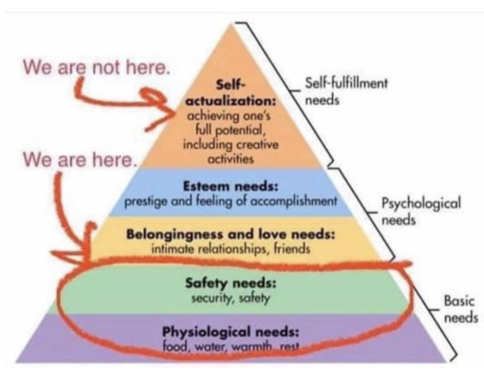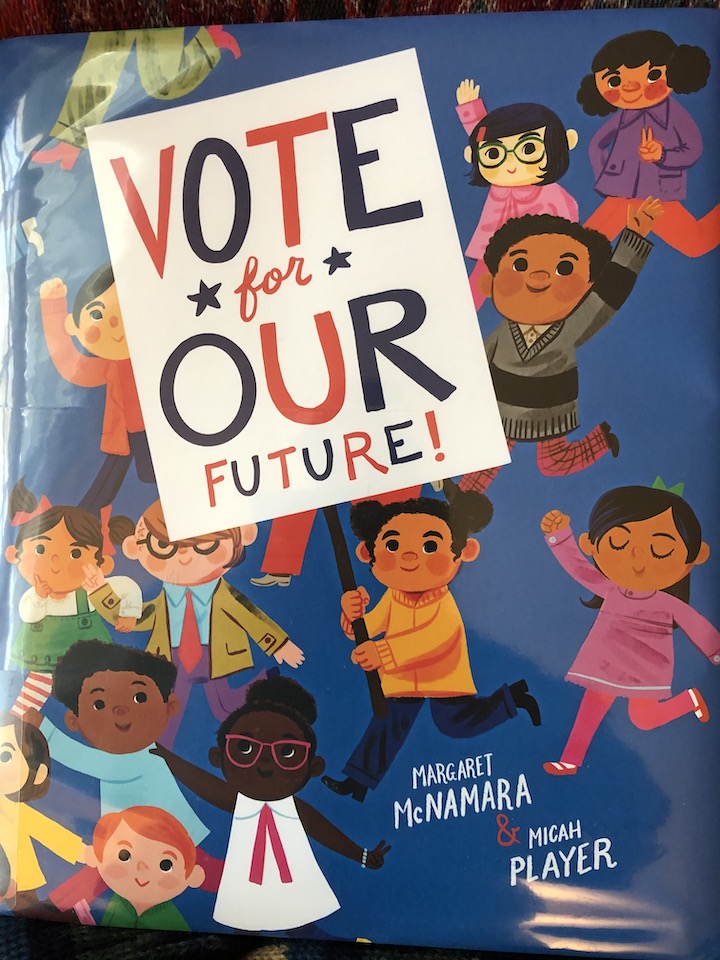Update to Sunday’s Consequences post:
From author John Scalzio in an interview for the New York Times Book section, May 17, 2020:
“Maybe people might look at me askance for “Atlas Shrugged” [being on my bookshelf], since I’ve written about how Ayn Rand valorizes a genocidal sociopath in John Galt, and I think it’s a really bad sign when ostensible adults take her “philosophy” seriously (and even worse when they’re elected to office). But I’ll tell you what, Rand could make a pot boil; there’s a reason her brand of nonsense sells.”
Even John Wayne was a fictional construct and he wasn’t as tough as the movies made him seem. When he was no longer young, strong and healthy he succumbed to disease. Lucky for him that he was rich, so he got great healthcare along the way. For the rest of us Ayn Rand’s “we’re all on our own” craziness really doesn’t work well. Few of us can tolerate being prevented from getting basic needs met just because we’re not young, strong and healthy. There has to be a better way.
Here’s how our present system is working, this from the Economic Policy Institute:
With the jobless tally rising quickly by the millions, as businesses struggle to keep people employed during the pandemic, the absurdity of having our health care linked to jobs becomes painfully clear.
EPI research determined 16.2 million Americans have likely lost their health care due to pandemic job losses. Linking health insurance to employment has always been problematic. The pandemic is highlighting and exacerbating those issues. Medicare for All, while a hugely ambitious policy undertaking, could be one way to remedy this situation.
Watch their 2-minute explanation of how Medicare For All would affect jobs. It isn’t what the naysayers tell us.

Apologies, but I don’t remember who posted this. Nevertheless, good on them!
This pandemic has made it abundantly clear that our highest-cost-in-the-world medical system isn’t providing the best care for most of us. And the layoffs/furloughs/firings/loss of employment caused both directly and indirectly by this disease have illustrated the folly of healthcare tied to employers and employment.
Perhaps you’re high on Maslow’s heirarchy and you’re asking the question, “What is it that we are supposed to learn from this pandemic, the lesson that we have steadfastly refused to learn any other way?” Here’s the answer:
It’s all about how we care for and care about one another.
It’s plain that this is no time for “rugged individualist” thinking to prevail. Embrace the “together” part of “We’re all in this together,” because if we refuse that, all of us are condemned to suffering that doesn’t have to happen, as though we plugged our ears when the answer to the question was given to us.
You don’t know it yet, but you want to read “9 ways Covid-19 may forever upend the U.S. healthcare industry.” The intense pressure that’s been brought to bear on every part of our healthcare system by this pandemic, including how we pay for it, is going to change everything about it. Let me know what you think.
——————————-
Ed. note: We need to spread the word so that we make a critical difference, so
- Pass this along to three people, encouraging them to subscribe (IT’S A FREEBIE!).
- Engage in the Comments section below to help us all to be better informed.
Thanks!
The Fine Print:
- Writings quoted or linked from my posts reflect a point I want to make, at least in part. That does not mean that I endorse or agree with everything in such writings, so don’t bug me about it.
- Sometimes I change my opinions because I’ve learned more about an issue. So, educate me. That’s what the Comments section is for.
- Errors in fact, grammar, spelling and punctuation are all embarrassingly mine. Glad to have your corrections.
- Responsibility for the content of these posts is unequivocally, totally, unavoidably mine.
JA
Copyright 2026 by Jack Altschuler
Reproduction and sharing are encouraged, providing proper attribution is given.


5 Responses to Update to Consequences
John Calia May 20, 2020
Our healthcare is no longer linked to employment. Obamacare shifted it’s availability to exchanges available in each state.
PS John Gart is a fictional strawman created to make a point. To suggest Atlas Shrugged is nonsense is to dismiss its objectivist message without any due diligence. It’s beneath you.
Jack Altschuler May 20, 2020
Your claim that healthcare is no longer linked to employment will come as quite a surprise to the 17 million who have lost their medical insurance. Some will go on the ACA; some will go on Medicaid; over 6 million will have nothing.
Jim Altschuler May 20, 2020
I really like the concepts but I’m incredibly skeptical that the concepts and recommendations will even begin to be instituted within my remaining lifetime. We’re talking about limiting or even eliminating the medical industry’s cash cows. Those corporations and medical facilities will, I believe, have to be dragged kicking and screaming into the suggested medical and pharmaceutical future.
John Calia May 20, 2020
Eliminating them and replacing them with what exactly? Some government run bureaucracy? Absent the profit motive, institutions become unaccountable to their customers.
Jack Altschuler May 20, 2020
I take your point, John, but they’re doing pretty good medicine in a lot of countries without the wild west profit motive we have here.
Bear in mind that I’m an entrepreneur and I like markets. Healthcare, though, is a different animal. A need for a gall bladder removal isn’t something we can decide not to do because it’s too pricey now that dad got laid off.